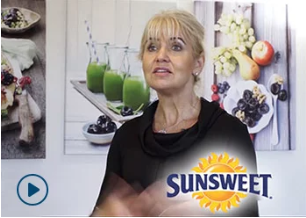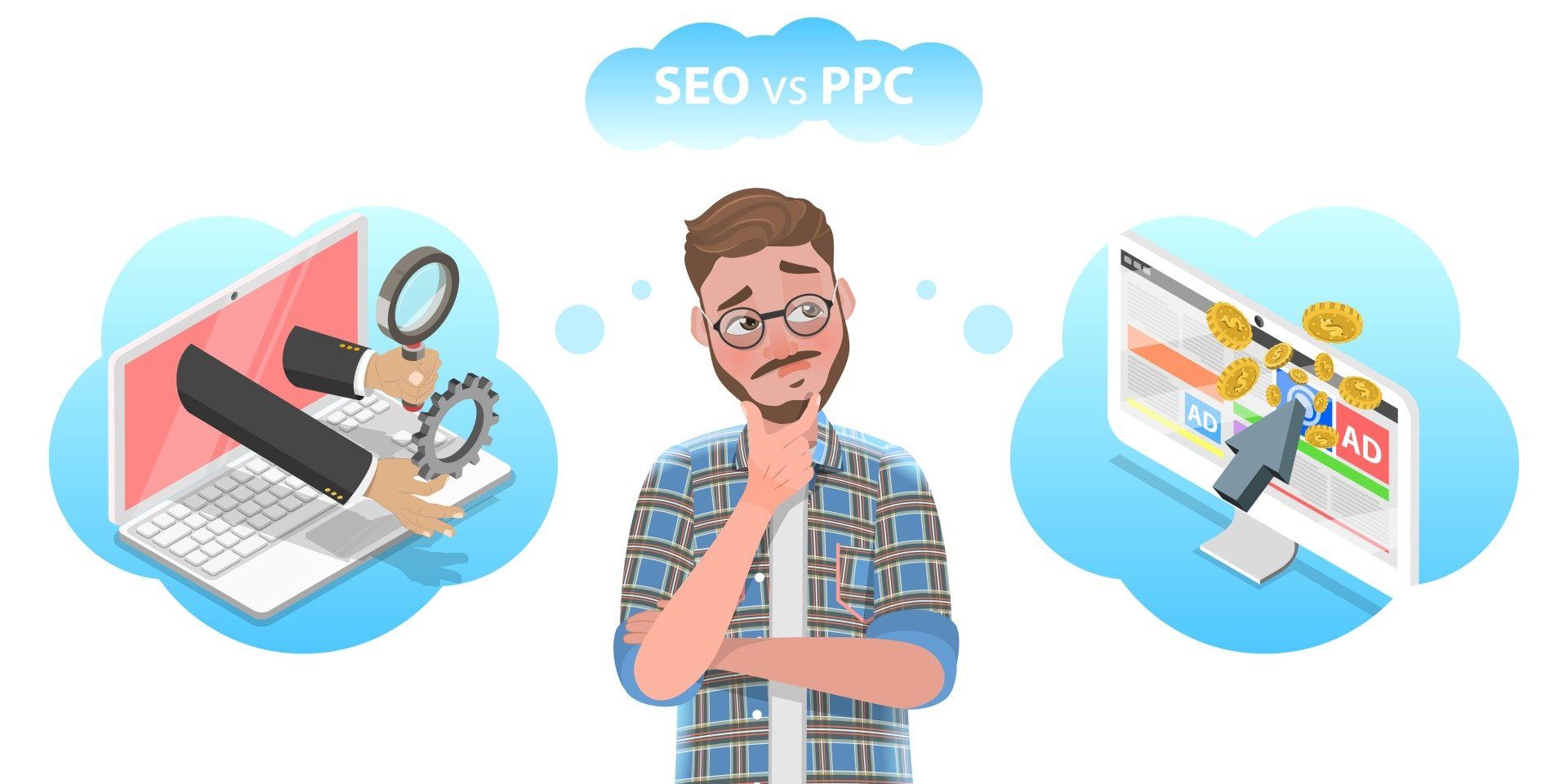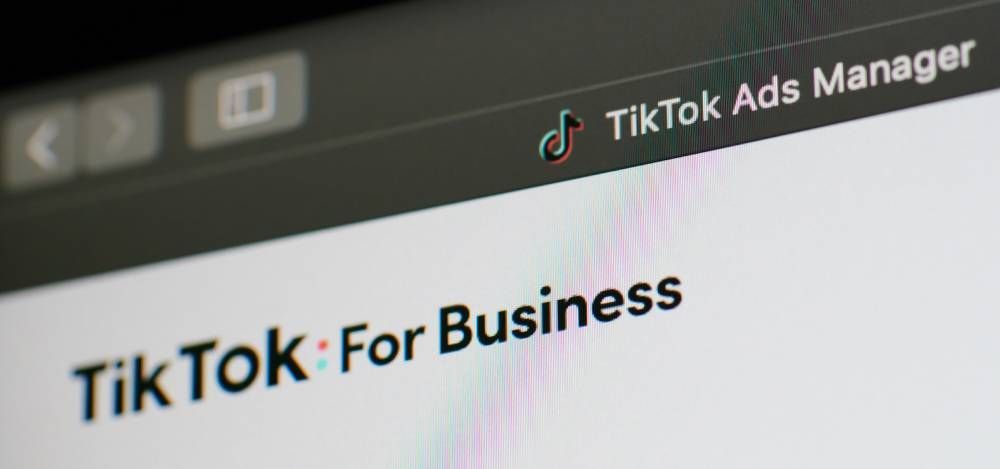- HOME
- ABOUT US
- SERVICES
- CUSTOMER STORIES
- OUR EXPERTS
- CONTACT US
- RESOURCES
555-555-5555
In need of some sound digital marketing advice?
Book a free consultation with one of our experts.

Making a difference in our clients’ lives
We positively impact the lives of our clients beyond their KPI reports.

Search Engine Optimization (SEO) or Paid Search (PPC): What Should You Choose?
Gerardo Kerik
Digital Marketing Consultant
August 3, 2021
As an Internet Marketing Consultant with a Search Engine Marketing (SEM) company, I am often asked by clients and prospects whether there’s a basic philosophy regarding whether to choose organic (SEO) or PPC paid search advertising:
“Is one more favorable than another? How do I know which channel will work better? Should I do both?”
Only after a hard look at your company’s goals and unique situation can you arrive at a concrete answer to those questions. The true test of pursuing either an SEO campaign or pay-per-click (PPC) advertising (or both) is knowing that it all boils down to your company philosophy, return on investment (ROI) objectives, budget, and numerous other monetary and marketing factors.
To determine which, or what combination of both, might offer the most bang for your buck, let’s examine five “models” that my company often deals with.
1. Search Engine Optimisation (SEO) Only
Some clients are strictly interested in kicking off an SEO campaign, usually for a few basic reasons. They have tried PPC and decided it didn’t work, so they aren’t interested in trying it again in the foreseeable future. (Whether the initial campaign was set up effectively and the channel should be revisited is a subject for future discussion.)
They also often feel that since they themselves often ignore PPC ads on the right-hand side of the page, everyone else must do the same. Although there’s nothing inherently wrong with pursuing SEO exclusively, it normally will take a while to achieve rankings for competitive, profitable key phrases placed within your page content, and there’s no way for your SEM company to accurately predict (as it probably can with some degree of accuracy with PPC advertising) what the initial results will be and when they will occur. However, for companies that do not have an immediate sense of urgency in their online-marketing initiatives and do not want to pursue PPC, organic SEO still offers a great, albeit slightly delayed, ROI.
2.Pay Per Click ( PPC) Only
Alternatively, a SEM company may encounter clients who are primarily interested in PPC—and nothing else. Even with a limited spend, clients can turn their campaigns on and off as needed, making market segments easier to control than with an SEO campaign.
PPC also allows clients to achieve a somewhat predictable ROI if the campaign is managed effectively: “If I spend X, I’ll get back Y.” The clients that fall within the “PPC advertising only” category may have worked with an SEM company before, pursued SEO exclusively, and achieved less-than-stellar results.
Despite all the positive press hyping what SEO can do for website visibility in recent years, it’s still viewed as more voodoo than science by most companies pursuing online marketing for the first time. With such companies, organic SEO is usually a topic we broach after achieving success with PPC.
3. SEO With PPC Stopgap
The first and most common question that an SEM company may hear concerning an SEO campaign is how long it will take to achieve results. Naturally, clients want to be able to see the investment almost immediately. That is where the PPC stopgap approach comes in.
Though a client’s budget is usually fixed, the client is often willing to spend a little more on the front end to see immediate results. Once positive results are evident, PPC spending is scaled back as SEO takes hold. An advantage of that approach for clients with limited budgets is that it can be managed on a very granular level. When top organic results are achieved for a given key phrase, PPC bidding for that term can cease. Over time, PPC expenditures can theoretically be eliminated entirely. PPC stopgap appeals to those who want a wide range of coverage and immediate results but have a fixed monthly budget that they do not control.
4. Hybrid Model
A hybrid model is similar to a stopgap model, except that the client has no intention of eventually leaving the PPC arena entirely. Rather, the client has its SEM company do a full optimization and paid-search campaign at the outset, with the expectation that PPC costs will be reduced but not eliminated as the organic campaign takes hold.
In the hybrid model, clients recognizes that in an organic SEO campaign they will be limited in the number of keyword phrases that they can target with the amount of real estate on their website. With a PPC campaign, however, there is no downside to targeting thousands of relevant long-tail keyword phrases, or search terms that consist of longer strings of words.
Using the hybrid model, a company removes keyword phrases from the PPC campaign on a granular level as it achieves top organic results for those phrases, but it continues to bid on keyword phrases that the site does not yet target.
5. Full-Out SEM
This approach calls for both SEO and PPC initiatives running at full speed. Clients wanting this approach are generally those that consider the two efforts as separate “beasts” and believe that showing up highly in both channels is a good thing… as long as the return justifies the spend.
Those clients are happy to spend as much as possible with their SEM company and do not usually have a set marketing budget—just strict ROI objectives. As long as each channel is performing within acceptable ranges, the clients are happy to reap the benefits. Generally, they treat the two disciplines as unique channels and monitor the results independently.
Choosing the Right Model Which approach is right?
It depends. (You weren’t expecting a definitive answer, right?) The decision between SEO efforts vs. PPC advertising depends on means, goals, budget, comfort level, corporate restrictions, and many other elements. Keep in mind that the models in this article are only five of the many that we often encounter.
Many clients do not fit neatly into any of the scenarios described in this article. Some clients may start out with one option and evolve into another. Some switch back and forth depending on their own ever-changing situation. The most important thing is to be aware of your options and pursue a path that fits your current goals and partnering with a SEM company to help you will achieve results quicker and more cost effectively.
For more information on how to decide between SEO or PPC, or to balance the two, or to find out more about any of our digital marketing services,
contact us today.
The Best Digital Marketing Insight and Advice
The WSI Digital Marketing Blog is your go-to-place to get tips, tricks and best practices on all things digital marketing related. Check out our latest posts.
Subscribe Blog
Thank you for contacting us.
We will get back to you as soon as possible.
We will get back to you as soon as possible.
Oops, there was an error sending your message.
Please try again later.
Please try again later.
*You may unsubscribe from digital communications at anytime using the link provided in WSI emails.
For information on our privacy practices and commitment to protecting your privacy, check out our Privacy Policy and Cookie Policy.
For information on our privacy practices and commitment to protecting your privacy, check out our Privacy Policy and Cookie Policy.
Don't stop the learning now!
Here are some other blog posts you may be interested in.
Don’t miss this opportunity to unlock the potential of AI for your portfolio company. Whether you're looking to streamline operations or improve customer service, this session will provide the insights you need to take action.
Schedule a One-on-One consultation
If your company is already exploring AI opportunities or facing specific challenges, skip the wait and schedule a one-on-one consultation with WSI’s AI experts. During this session, we’ll discuss your unique needs and identify potential AI-driven solutions tailored to your business.
© 2021 WSI. All rights reserved. WSI ICE and WSI IM are registered trademarks of RAM. Privacy Policy and Cookie Policy
Each WSI Franchise is an independently owned and operated business.




